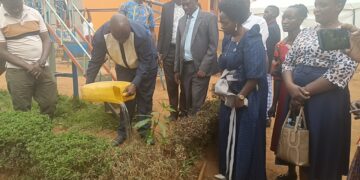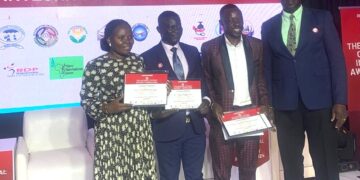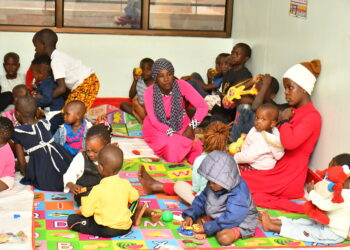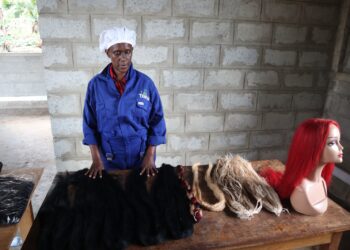The Uganda National Bureau of Standards (UNBS), in collaboration with the African Organisation for Standardisation (ARSO), has unveiled 15 new African Standards aimed at safeguarding consumers and promoting trade in grasshoppers (locally known as Nsenene) and other edible insects.
The standards encompass the entire edible insect value chain, including farming and wild harvesting practices, processing, hygiene, packaging, safety, and regulatory compliance.
The two-day launch event in Kampala marks a significant milestone for Africa’s rapidly growing edible insect sector, which many countries, including Uganda, are increasingly exploring as a source of protein and income.
Eng. James Kasigwa, Executive Director of UNBS, emphasized that establishing standards for edible insects is essential for ensuring product quality, consumer safety, and market expansion, while also building trust among consumers.
“Standardisation enables products to compete in regional and global markets, guaranteeing quality and safety for everyone,” he said.
The newly launched standards cover a wide array of insects, including grasshoppers, crickets, locusts, bee larvae, termites, white ants, and dung beetles, offering broad opportunities for trade and consumption across Africa.
Eng. Kasigwa explained that rising population, urbanization, and changing dietary patterns are increasing demand for animal protein, while traditional livestock systems struggle to meet the needs efficiently.
“Insects are a promising alternative source of protein—they are nutrient-dense, require less land and water, and have minimal greenhouse gas emissions,” he noted.
Patrick Mugisha, Commissioner for Business Development and Quality Assurance in the Ministry of Trade, Industry, and Cooperatives, highlighted that edible insect standards will enhance competitiveness, create business opportunities, and contribute to Uganda’s long-term economic goals, including the ambitious plan to grow GDP from nearly $50 billion in 2023 to $500 billion by 2040.
In a speech read on his behalf, State Minister for Trade Gen. Wilson Mbadi celebrated the cultural significance of edible insects in Uganda, noting that species like termites and long-horned grasshoppers are widely consumed and provide important sources of protein.
He added that these insects are increasingly valued not only for human consumption but also as affordable alternatives in animal feed.
Studies indicate that protein content in commonly consumed insects ranges from 35% to 60%, underscoring their nutritional potential.
Gen. Mbadi also acknowledged ARSO and the International Centre for Insect Physiology and Ecology (ICIPE) for their role in supporting the development and launch of these standards and building capacity for implementation.
The edible insect sector in Uganda has seen significant growth. Since 2016, Flying Food Uganda has supported 39 cricket-rearing centers and over 2,000 individual farmers.

As of January 2025, more than 16 community and school-based insect farms are operational, demonstrating the increasing economic potential of this sector.
Uganda was among the first countries in Africa to develop standards for edible insects and their use in animal feeds in 2017/2018, in collaboration with Makerere University and ICIPE, followed by Kenya and Rwanda.
Dr. Hermogene Nsengimana, ARSO Secretary General, urged member states to implement the standards to strengthen trade under the African Continental Free Trade Area (AfCFTA).
“Standards are meaningless unless they are put into practice,” he said.
Dr. Jimmy Pittchar, Director of ICIPE, highlighted the global potential of the sector, estimating the edible insect market for food and feed at $1.35 billion to $1.77 billion, with projections rising to between $4.38 billion and $17.9 billion by 2033.
Both UNBS and ARSO pledged support to around 200 small and medium-sized edible insect businesses to adopt the standards and thrive in this growing industry.

































